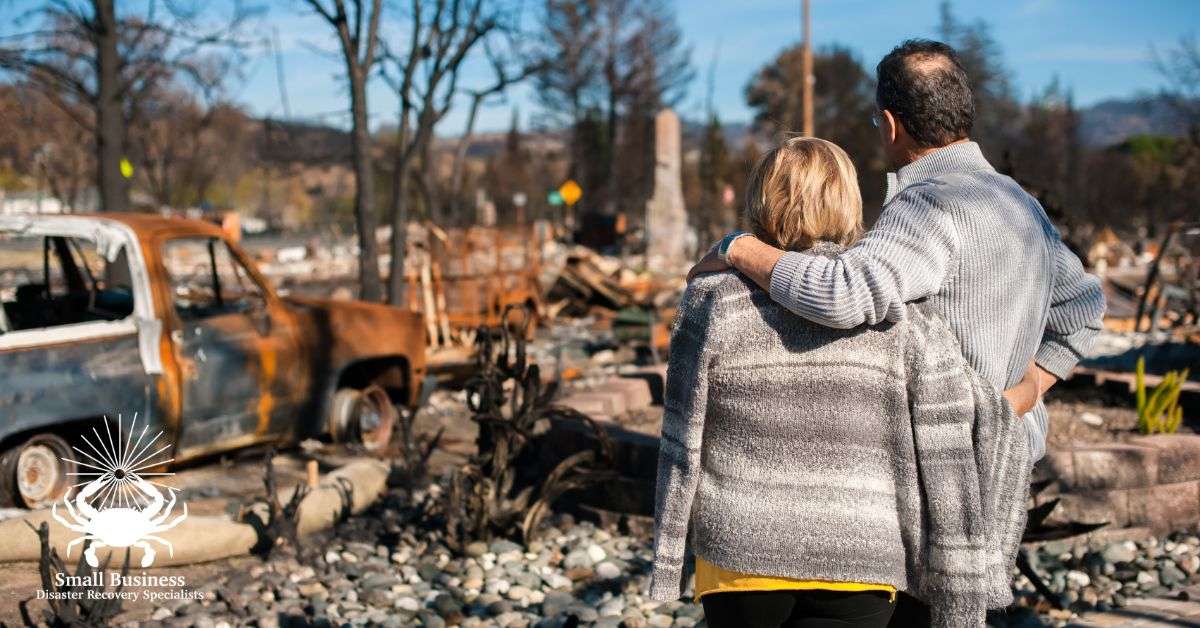Preparing for unexpected disasters is essential for small business owners to protect their livelihood and ensure business continuity. While insurance coverage provides financial protection against various risks, navigating insurance policies can be daunting, especially after a natural disaster. At Small Business Disaster Recovery Specialists, we understand the challenges small business owners face when it comes to insurance coverage. In this article, we’ll provide expert advice and insights to help small business owners navigate insurance coverage for disasters.
Assess Your Insurance Needs
The first step in navigating insurance coverage for small business disasters is to assess your insurance needs. Consider the specific risks and vulnerabilities that your business faces, such as natural disasters, fire, theft or liability claims. Evaluate your current insurance policies to determine whether they provide adequate coverage for these risks or if additional coverage is needed.
Understand Your Insurance Policies
It’s essential to understand your insurance policies, including coverage limits, exclusions, deductibles and claim procedures. Review your policies carefully and seek clarification from your insurance agent or broker if you have any questions or concerns. Understanding the terms and conditions of your insurance policies will help you make informed decisions and ensure that you have the right coverage in place.
Consider Business Interruption Insurance
Business interruption insurance is a valuable coverage that can help offset the financial losses from temporary closures or disruptions caused by a covered peril, such as a natural disaster or fire. This coverage typically provides reimbursement for lost revenue, ongoing expenses and additional costs incurred to minimize the impact of the disruption. Consider adding business interruption insurance to your policy to protect your business’s financial stability in the event of a disaster.
Explore Additional Coverage Options
Depending on your business’s specific needs and industry, there may be additional coverage options available to enhance your insurance protection. For example, you may want to consider cyber insurance to protect against data breaches and cyberattacks, or inland marine insurance to cover valuable equipment and inventory while in transit or stored off-site. Work with your insurance agent to explore additional coverage options that are relevant to your business.
Review and Update Your Coverage Regularly
As your business evolves and grows, your insurance needs may change. It’s essential to review and update your insurance coverage regularly to ensure that it remains adequate and up-to-date. Keep your insurance agent informed of any changes to your business, such as expansions, acquisitions or changes in operations, to ensure that your coverage is adjusted accordingly.
Work with a Trusted Insurance Advisor
When navigating insurance coverage for small business disasters, it’s crucial to work with a trusted insurance advisor who understands the unique needs and challenges of small businesses. A knowledgeable insurance agent or broker can help you assess your risks, identify gaps in coverage and tailor a comprehensive insurance program to protect your business effectively.
Navigating insurance coverage for small business disasters requires careful planning, proactive risk management, and expert guidance. By taking the following steps, you can ensure your small business is adequately protected against unforeseen disasters:
- Assessing your insurance needs,
- Understanding your insurance policies,
- Considering business interruption insurance,
- Exploring additional coverage options,
- Reviewing and updating your coverage regularly,
- Working with a trusted insurance advisor.
At Small Business Disaster Recovery Specialists, we are helping small business owners navigate the complexities of insurance coverage and recover from disasters effectively. Contact us today to learn more about our services and how we can help protect your business.


